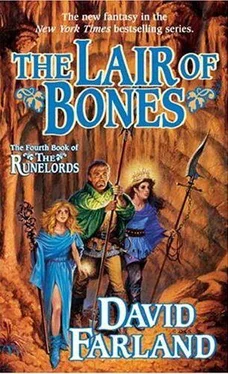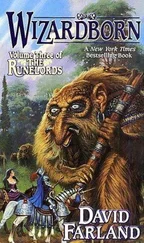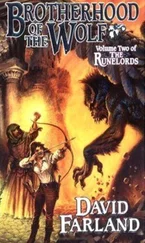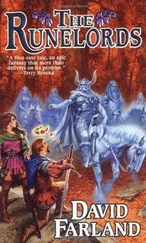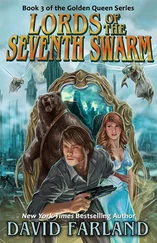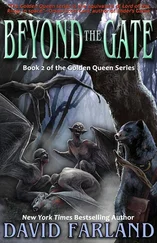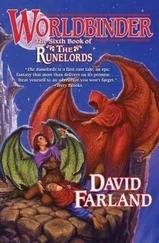David Farland - The Lair of Bones
Здесь есть возможность читать онлайн «David Farland - The Lair of Bones» весь текст электронной книги совершенно бесплатно (целиком полную версию без сокращений). В некоторых случаях можно слушать аудио, скачать через торрент в формате fb2 и присутствует краткое содержание. Жанр: Фэнтези, на английском языке. Описание произведения, (предисловие) а так же отзывы посетителей доступны на портале библиотеки ЛибКат.
- Название:The Lair of Bones
- Автор:
- Жанр:
- Год:неизвестен
- ISBN:нет данных
- Рейтинг книги:3 / 5. Голосов: 1
-
Избранное:Добавить в избранное
- Отзывы:
-
Ваша оценка:
- 60
- 1
- 2
- 3
- 4
- 5
The Lair of Bones: краткое содержание, описание и аннотация
Предлагаем к чтению аннотацию, описание, краткое содержание или предисловие (зависит от того, что написал сам автор книги «The Lair of Bones»). Если вы не нашли необходимую информацию о книге — напишите в комментариях, мы постараемся отыскать её.
The Lair of Bones — читать онлайн бесплатно полную книгу (весь текст) целиком
Ниже представлен текст книги, разбитый по страницам. Система сохранения места последней прочитанной страницы, позволяет с удобством читать онлайн бесплатно книгу «The Lair of Bones», без необходимости каждый раз заново искать на чём Вы остановились. Поставьте закладку, и сможете в любой момент перейти на страницу, на которой закончили чтение.
Интервал:
Закладка:
Others barrels were used by the ferrin for food storage—and thus held a bit of wheat stripped from the fields, or dried cherries, or rubbery turnips plundered from gardens. Two barrels had been used as graveyards, and were filled with old ferrin bones.
All of the barrels stank of musk.
They were halfway done pulling the barrels out when Aunt Constance brought some tea.
“I think we should burn these barrels,” Chemoise said. “The ferrin have peed all over them.”
But Aunt Constance would have none of it. “No, we’ll put them back tomorrow. The ferrin would starve without their food stores, and there are mothers living there, with wee babes to feed.” She looked pointedly at Chemoise’s stomach. Uncle Eber and Aunt Constance had only managed to have one daughter of their own, and she had died in childhood, so she was perhaps a bit tenderhearted when it came to children. “Ferrin don’t eat much, you know—a few cherries that fall from the trees, mice and rats and sparrow eggs, things like that. The rats down in the wine cellar were terrible until Eber brought some ferrin up from Castle Sylvarresta. Ferrin don’t like wine, you know. Now we always put a load of hay in the winery come fall, to help keep their nests warm through the winter.”
“You brought them here?” Erin asked. “I thought they were wild.”
“Down south, in the Dunnwood, they live wild,” Constance said. “But not up here, dear. It’s too cold in these mountains come winter.”
In southern Heredon, the wild ferrin were enough of a nuisance that the tax collector would pay two copper doves for every ferrin hide you brought in. Many a poor family avoided taxes altogether by collecting the bounties. But Uncle Eber and Aunt Constance didn’t seem the kind to want to slaughter a whole village full of ferrin for a few coins.
“All right, then,” Chemoise promised, “we’ll work around them.”
So Chemoise and Dearborn spent the morning clearing out the room and sweeping the dust from the floor. The dust cloud raised a stink, and the ferrin whistled in outrage and kept poking their heads from their burrows to let the big folk know about it.
Chemoise found that she and Dearborn worked well together. He was a farmer, used to guiding a plow, and chopping down trees for firewood, and shoeing his own horse. He was strong enough to move the heaviest barrel, and graceful enough to wrangle it around without stepping on Constance’s feet while she swept and mopped.
Indeed, as they worked, she found that it almost became a dance. Dearborn would wrestle the barrels while she swept. She found herself continually drawing close to him, and sometimes she’d look up to find that he was gazing into her eyes, but they never touched. Instead, he’d merely smile shyly and look away.
Sometimes he tried to make small talk, joking and asking about her “husband.” She told him how Sergeant Dreys had died at the hand of an assassin after only two months of marriage.
She watched Dearborn withdraw at the news. He hadn’t really wanted to know about her “supposed” husband. Instead, he wanted to know how he fared against his memory, and he knew that it was not an equal contest. Dreys had been in the King’s Guard, and had made sergeant by age nineteen. He’d have been a captain by forty, and would most likely have been retired as a baron of the realm. He would have had title and lands, and serfs working his fields.
Hawks could not compete against that. He was the oldest of ten, and had the birthright of his family. But it wouldn’t fetch him much in the long run. His father was a farmer and a landowner, almost as wealthy as Chemoise’s Uncle Eber, but once the farm was split among the six boys, they wouldn’t all be able to make a living on it.
Hawks had little to offer a woman. So he worked. He tried to make light of it, but she soon saw the sweat staining the back of his tunic. Hawks took most of the barrels outside, and since Constance had said that she would want them replaced later, he piled them on each side of the path, and then, with the help of old shelving boards, stacked them overhead, making a sort of arch that the townsfolk could walk under. There were at least two hundred old barrels.
By noon, the tunnels were nearly cleared, and the smell of mold and dust and ferrin had receded, but there was still much to do. Both Chemoise and Dearborn just went outside and sat down, too tired to continue.
Downhill just a tad, her uncle’s manor squatted. The foundation was stone. The mud and wattle on the sides had all been whitewashed, and a new load of thatch was on the roof. A pair of geese fed in the garden out back, and her uncle’s old plow horse stared at her dolefully from the corral behind the barn.
It was a good life here in Ableton. Everything a person needed seemed to be close at hand. Her uncle had been living here, eating from his own garden from the time that he was born forty-six years ago. If Chemoise needed a new dress, Mrs. Wycutt would sell her a bolt of cloth, or sew it for her for a couple of copper doves. If her uncle needed a new plow, the smith could have it done in a week. Everyone knew everyone, and everyone watched out for everyone else.
Chemoise had thought that this would be a fine place to raise her son. She knew the child would be a boy, for she’d loved Sergeant Dreys so much that when he died, she’d lured his spirit back into her womb.
Now she felt apprehensive. The sky had gotten heavier since dawn. The haze was as thick as cream, and Chemoise could feel an electric thrill in the air. “There’s going to be a storm tonight,” Hawks said. “I’ll bet that’s what the Earth King was warning us about—grand storm, with lots of wind. I’ll bet it knocks whole houses down.”
“I hope not,” Chemoise said. “I’d hate to see my uncle’s house knocked down.”
“Stay close to me,” the Hawks boy offered, “whatever it is.”
She almost laughed, but she could see sincerity in his eyes. He was offering to protect her, and no matter how melodramatic his appeal, she would not mock him for it.
Aunt Constance came out to check on the situation. She inspected the rooms, and said, “Give me an hour.”
She came back half an hour later with twenty women from the village. They finished pulling out the last of the barrels, and in the back of the storeroom found three old kegs that still held wine. Uncle Eber was called upon to test it. The first barrel had gone to vinegar, but after a sip from the second, he declared, “Why, this is worth a king’s ransom! Tonight we will have a party indeed!”
So the women swept and mopped the cobblestones, and strewed the floors with fresh rushes and pennyroyal to clear the air. The old door had rotted half away, so the miller, who was also the closest thing the village had to a carpenter, came and put up new posterns of fresh oak, and bolted together some planks to make a door so thick it would keep out a cavalry charge. The villagers brought in bedrolls and tables and chairs, and slowly the party room began to take form.
Then folks began to bring the food, as fine a feast as was ever served on Hostenfest. One table was loaded with plates of eels, just fished from the River Wye, and a pair of roast geese, and a suckling pig stuffed with baked apples and cinnamon. Another table was heaped with breads—hazelnut rolls, and butter muffins, and loaves of dark rye with wild honey. A third table was reserved for bowls full of salads made with fresh greens from the garden and the woods, sweetened with rose petals. It also held fruits—grapes just plucked from the vines, and ripe woodpears—along with carrots, beans, and buttered turnips. The last table was for desserts: chestnut pudding, nutmeg custards, and blackberry cobbler—all to be washed down with the finest wine that anyone in the village had tasted in years.
Читать дальшеИнтервал:
Закладка:
Похожие книги на «The Lair of Bones»
Представляем Вашему вниманию похожие книги на «The Lair of Bones» списком для выбора. Мы отобрали схожую по названию и смыслу литературу в надежде предоставить читателям больше вариантов отыскать новые, интересные, ещё непрочитанные произведения.
Обсуждение, отзывы о книге «The Lair of Bones» и просто собственные мнения читателей. Оставьте ваши комментарии, напишите, что Вы думаете о произведении, его смысле или главных героях. Укажите что конкретно понравилось, а что нет, и почему Вы так считаете.
